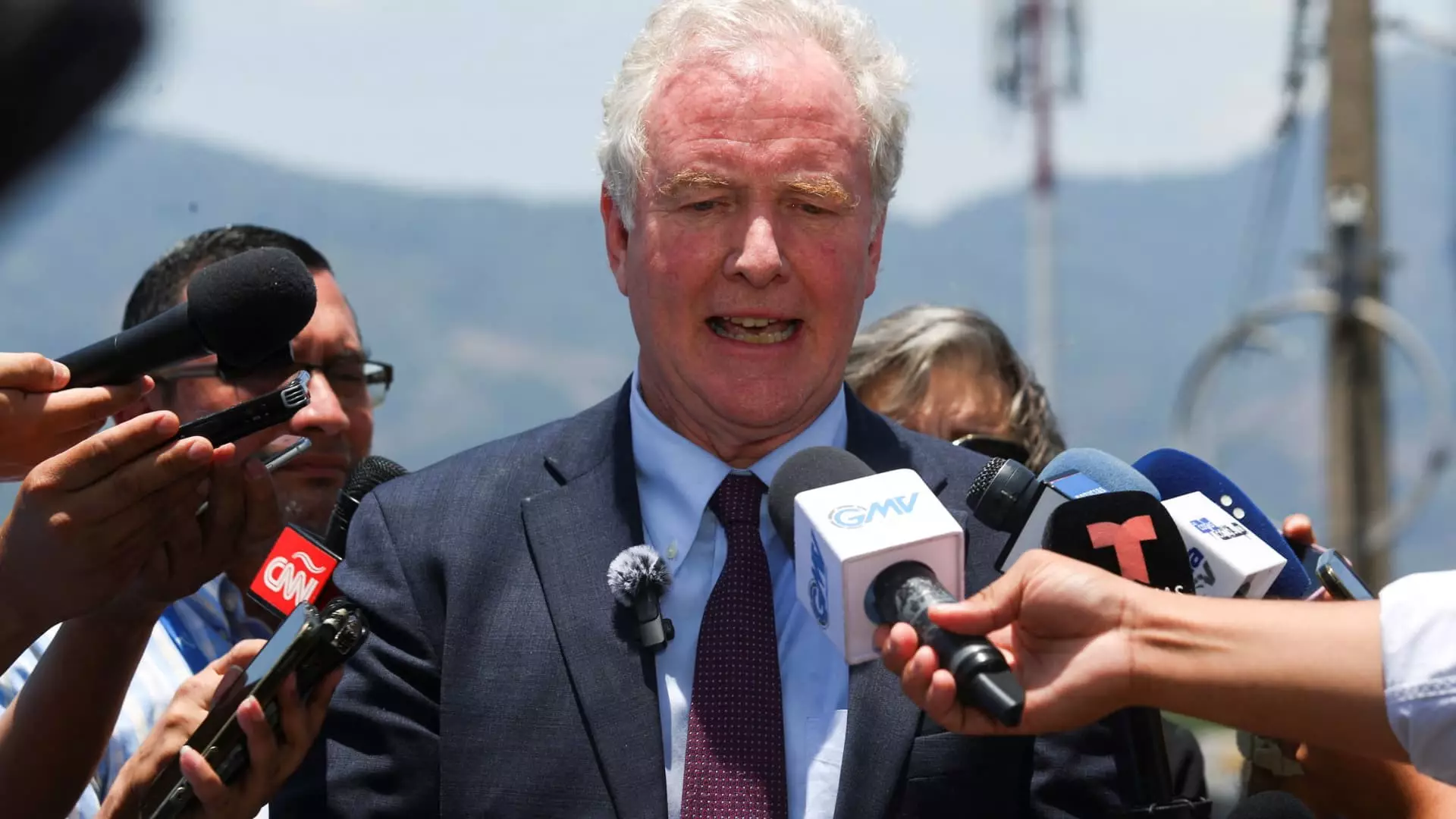In a world where laws are ideally upheld to safeguard human dignity, the story of Kilmar Abrego Garcia stands as a stark reminder of the systemic failures within our immigration system. Senator Chris Van Hollen’s recent communication about meeting Garcia, a man mistakenly deported by the Trump administration, signals the flawed and frightening nature of governance in our country. Living in a nation that prides itself on upholding justice and human rights, one cannot help but feel a growing sense of urgency and outrage at the shocking disregard for court rulings and human rights.
Senator Van Hollen’s insistence on meeting Garcia draws attention to an alarming issue that transcends partisan politics. The denial of entry to the Salvadoran prison, CECOT, where Garcia is being held provides a chilling demonstration of how power can be wielded to obstruct transparency and accountability. As Van Hollen highlighted, encountering military personnel armed with orders to prevent his access to a U.S. citizen raises profound questions. What is the extent of the government’s reluctance to confront its own failures? The silence and bureaucracy surrounding Garcia’s case should not be interpreted as mere inefficiency; they reveal an appalling lack of empathy towards individuals struggling for their basic rights.
The Shocking Implications of Deportation
Garcia’s case is not an isolated incident but rather part of a larger narrative that reflects the chaotic consequences of indiscriminate deportation policies that have emerged over the last decade. Are we prepared to let such actions, backed by misguided nationalistic fervor, dictate our values? Garcia’s family has experienced a rollercoaster of emotions, and the stakes could not be higher as they wait for news about his wellbeing. The fact that local officials have had to demand proof of his safety underscores the despicable reality that, in today’s America, basic human rights protections are still negotiable.
The Supreme Court’s order to facilitate Garcia’s return was not merely a technicality but a principled stance affirming the necessity of honoring legal directives. Yet, here we find ourselves in a situation where the system’s officials and representatives conveniently ignore judicial mandates. Such blatant defiance is a disservice not just to Garcia and his loved ones, but to the very notion of justice itself, which should serve as a foundational pillar in our society.
The Burgeoning Role of Public Officials
It’s crucial to recognize the role of elected officials like Van Hollen, who are willing to go above and beyond the conventional boundaries of political engagement to advocate for individuals silenced by the system. Yet their efforts should not be seen as extraordinary but rather as a standard that all representatives should strive to meet. When faced with injustice, how many of our leaders will choose the path of fortitude over complacency? The lawmakers of our time have a duty to hold their administrations accountable—to challenge decisions that manifest human rights abuses and to raise their voices when vulnerable individuals disappear into bureaucratic voids.
Moreover, Van Hollen’s meetings with human rights groups and governmental officials assert the importance of collaborative efforts in the fight against systemic injustice. Humanity thrives in collective strength—uniting disparate voices can lead to the kind of societal change that empowers marginalized communities. Advocating for people like Garcia is more than just fulfilling political duties; it is a moral imperative.
Though we live in uncertain times, the potential for change rests not solely with the lawmakers but with the public as well. There is a collective responsibility to remain vigilant and to use the power of our voices to demand justice for all individuals, regardless of their origins. In a democratic society, silence can often be complicit, and it is vital that we stand firm against the forces that threaten to undermine our shared humanity.
In light of these considerations, the struggle to bring Garcia home is emblematic of a much larger battle for integrity, decency, and justice. As we reckon with the moral implications of our policies and practices, one has to wonder—could this be the wake-up call we need to re-evaluate our treatment of those seeking solace and safety in our land? The answer may well dictate the future of our nation—not only for Garcia but for many like him who dare to hope for a better tomorrow.


Leave a Reply